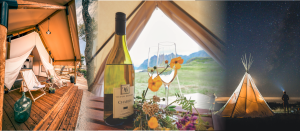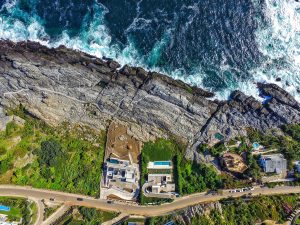36 Lesson 4D
1. Conversar. Mario, Juanito and Isabel are super felices because they are talking about vacations. Read their conversation and answer the following questions.

Mario: Hola amigos, voy de vacaciones a la playa en Málaga por una semana. Me encantan el mar y las olas y prefiero estar en un hotel elegante de cinco estrellas con mi habitación propia.
Juanito: Yo también voy a la playa en España pero me gusta más ir de camping porque es más económico y no gasto en hoteles caros. No tengo que pagar por una habitación porque llevo mi carpa y puedo descansar por un mes completo.
Isabel: Ay chicos, a mí me molesta la playa porque hace mucho calor en el verano. Me interesa ir a la montaña y alojarme en un hostal de estudiantes. Así puedo compartir una habitación con estudiantes de diferentes lugares. Me cuesta gastar mucho dinero y me gusta ahorrar un poco y estar más tiempo de vacaciones.
Preguntas:
- ¿Por qué le gusta a Mario ir de vacaciones a la playa?
- ¿Qué tipo de alojamiento prefiere Juanito y por qué?
- Según Isabel, ¿por qué es conveniente alojar (to stay) en un hostal de estudiantes?
- En tu opinión, ¿quién de los tres amigos tiene el mejor plan de vacaciones?
2. Decidir. Read the following statements and decide if you agree with them or not. Select sí if you agree or no if you don’t.
- Me importa un hotel limpio. Sí No
- Me interesa montar a caballo. Sí No
- Me fascinan las ruinas de México. Sí No
- Me encanta el paisaje del desierto. Sí No
- Me molestan las reglas (rules) de Airbnb. Sí No
- Me importa el alojamiento de cinco estrellas (stars). Sí No
- Me interesan las montañas. Sí No
- Me encanta hacer turismo. Sí No
3. Leer. Read the following paragraph and answer the questions based on the reading.

¿Sabes qué es “glamping”? Es una forma de acampar en la que puedes disfrutar de la naturaleza sin renunciar a las comodidades. En lugar de dormir en una tienda de campaña tradicional, puedes alojarte en carpas equipadas con todas las comodidades que necesitas.
Hay muchos tipos de glamping, desde cabañas de madera hasta yurtas y casas en los árboles. Las carpas de lujo a menudo tienen camas cómodas, baño privado y cocina. También pueden tener acceso a servicios adicionales, como un chef personal o un masajista.
En Perú, hay varios lugares donde puedes hacer glamping y pasar una experiencia única.
- ¿Qué es el glamping y cómo se diferencia del camping tradicional?
- ¿Qué tipos de alojamiento puedes encontrar en el glamping?
- ¿Cuáles son algunas de las comodidades que se ofrecen en las carpas de lujo de glamping?
- ¿Glamping o camping tradicional? ¿por qué?
4. Practicar. Read the following paragraph and conjugate the words in parentheses given the context.
5. Conversar. Walk around the classroom and ask your classmates about their likes and interests. If your classmates answers affirmatively, write their names in the box. If they say no, ask a different question. Be sure to conjugate the verb appropriately.
Modelo:
| Estudiante A: | Estudiante B: |
| Fascinar / las ruinas
(Asks) ¿Te fascinan las ruinas? |
Sí, me fascinan las ruinas. |
| (Writes name of classmate in the box) Ana |
| Interesar / los trenes | Encantar / hacer senderismo en las montañas | Interesar / vivir en el campo | Molestar / hacer turismo |
| Interesar / las ruinas | Encantar / esquiar | Interesar / los castillos | Fascinar / el desierto |
| Importar / el transporte público | Fascinar / viajar en un crucero | Fascinar / el océano | Encantar / el voleibol en la playa |
| Interesar / sacar fotos de monumentos | Molestar / las reservas | Interesar / visitar la selva | Molestar / el aeropuerto |
Printable PDF: Lesson 4D Activity 5 Walk around
6. Entrevistar. Talk with your partner about their travel preferences.
Paso 1. Use the following questions (or invent your own) to interview a partner on how they plan for trips and what they like about traveling. Take notes so you can remember what they say.
- ¿Prefieres planear mucho antes de ir de viaje?
- ¿Te importa traer (to bring) mucho equipaje en el viaje? ¿Qué tipo de equipaje te gusta más y por qué?
- ¿Qué más te molesta cuando estás de viaje? ¿Qué haces para evitar (avoid) estas molestias?
- ¿Qué te fascina más–la ciudad o el campo? ¿Por qué?
- ¿Por cuánto tiempo te gusta viajar? ¿Por qué prefieres viajar así?
Paso 2. Use your notes to write a short paragraph explaining how your partner prepares for a trip and what sorts of tripes they like to go on. Share this paragraph with your classmates.
7. Escuchar. Listen the dialogue between Pepa and Tita and answer the true and false questions.
Pepa y Tita son anfitrionas (hosts) que trabajan en hotelería en Chile. Pepa trabaja en el Hotel del Lago Grey, en las Torres del Paine y Tita trabaja en el Hotel del Valle que está en la zona de Los Andes en Valparaíso.

¿Cierto o Falso?
- Hoy llegan muchas personas a visitar el lago en las Torres del Paine.
- La habitación en el hotel del lago cuesta más de 900 dólares.
- La noche en el hotel del valle es más barata.
- El hotel del lago no ofrece muchas amenidades y no es de buena calidad.
- A Tita le gusta trabajar en un lugar con frío.
8. Opinar. Read the following comparative sentences and choose the adjective from the bank that best completes how YOU feel about each idea. It is okay to repeat a word. Remember to make sure your adjective agrees with the noun.
| divertida | peligrosa | genial | cara |
| barata | fascinante | interesante | hermosa |
Modelo: El desierto es menos divertido que la playa.
- Los boletos de avión son más ______________________ que los boletos de autobús.
- Ir de camping es más ______________________ que nadar en el océano.
- Visitar monumentos es menos ______________________ que montar en bicicleta.
- La estación de tren es más ______________________ que el aeropuerto.
- Viajar en tren es más ______________________ que viajar en avión.
- Un viaje a la playa es menos ______________________ que un viaje a la selva.
- El paisaje de los Estados Unidos es menos ______________________ el paisaje de Chile.
- Hacer senderismo en las montañas es más ______________________ que hacer senderismo en el bosque.
9. Entrevistar. Take turns picking any two modes of transport and asking your partner what they think about them. Your partner will answer using the adjectives from the bank to form comparative sentences (más…que / menos…que). Follow the model.
Modos de transporte:
| Los aviones | Los caballos | Los coches | Los trenes |
| Los metros | Las motocicletas | Los taxis | Las bicicletas |
Adjetivos:
| Cara | Barata | Rápida | Lenta | Ecológica |
| Divertida | Impresionante | Emocionante | Moderna | ¿Tu propia idea? |
Modelo:
| Estudiante A: | Estudiante B: |
| ¿Qué piensas de los aviones y los taxis? | Los aviones son más caros que los taxis. |
10. Investigar. Work with a partner to do some research into San Sebastián, Spain, and Cusco, Perú. Use Google Maps to find out information like city size, location, what the place is like, what they are surrounded by, etc.
Paso 1. Fill in the blanks in the following sentences comparing Cusco and San Sebastián with your partner based on your research.
- Cusco es _______ grande que San Sebastián en área.
- San Sebastián tiene _______ gente que Cusco.
- San Sebastián es _______ antiguo que Cusco.
- Durante el verano, hace _______ calor en Cusco.
- San Sebastián está _______ cerca al mar que Cusco.
Paso 2. Do some more research into these two cities and find ways to compare them. You can think about things like elevation, what the most common economic trades are, etc. Share your findings with your partner.
11. Comparar. Look at the chart below, with information about a hotel in San Sebastián and a hotel in Cusco.
| Hotel María Cristina, San Sebastián | Tierra Andina Mansión Colonial, Cusco | |
| habitación simple | $365 | $75 |
| habitación doble | $420 | $92 |
| habitaciones disponibles (available rooms) | 243 | 31 |
| desayuno | $15 cada persona | gratuito – incluído |
| aparcamiento | $7 | $10 |
| internet | gratuito – incluido | $3 |
| piscina | no | sí |
| acceso a la playa | sí | no |
Paso 1. Think about the following questions after reading the chart.
- ¿Qué tipo de habitación te gusta cuando vas a un hotel?
- ¿En qué hotel prefieres nadar? ¿Por qué?
- ¿Cuál te interesa más? ¿Por qué?
Paso 2. Now, compare these two hotels and answer the following questions.
- ¿Cuál es el hotel más grande?
- ¿Cuál hotel tiene habitaciones más baratas?
- ¿Cuál hotel ofrece el mejor oferta de desayuno?
- ¿En cuál hotel cuesta más el internet?

